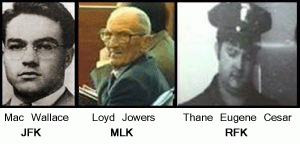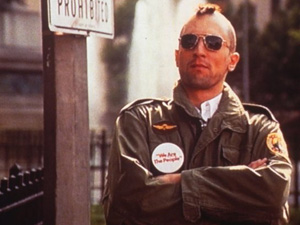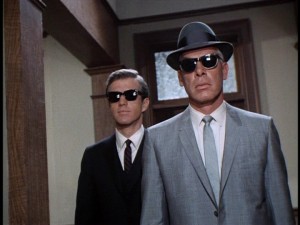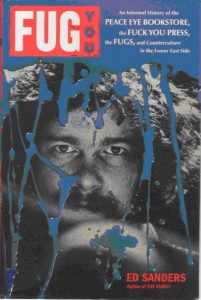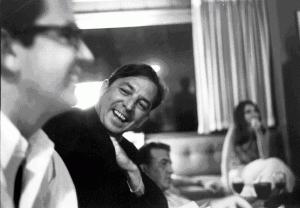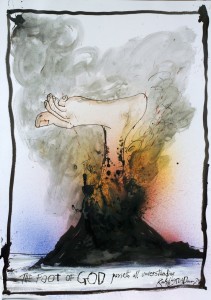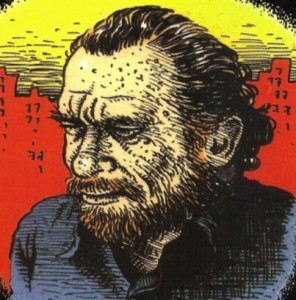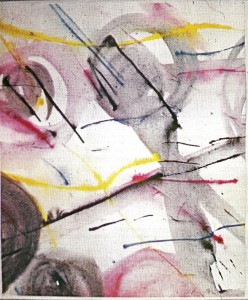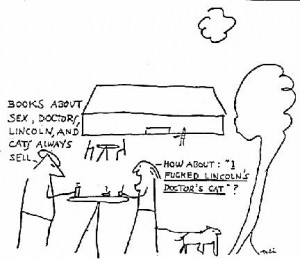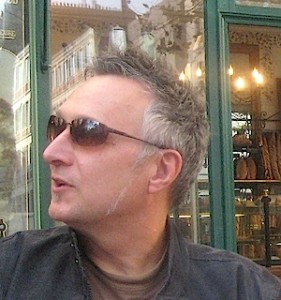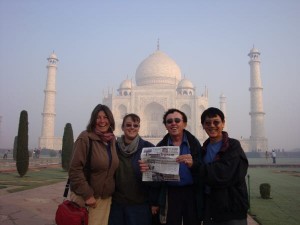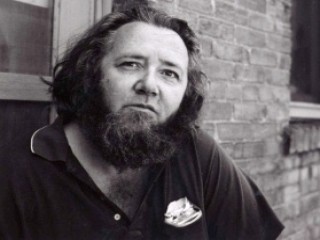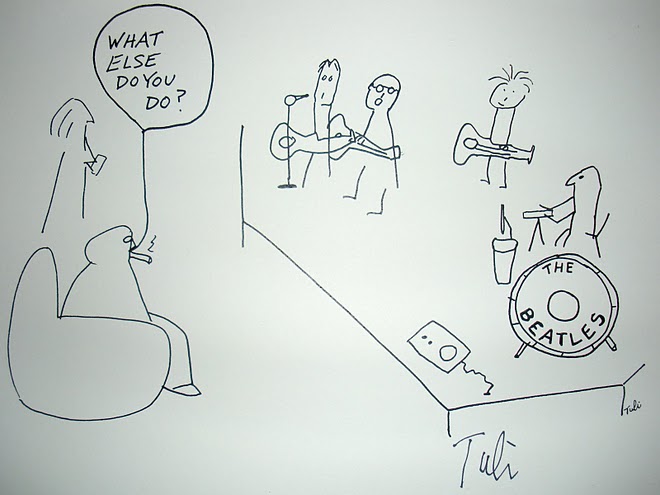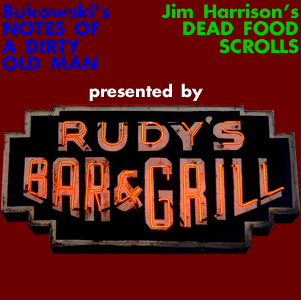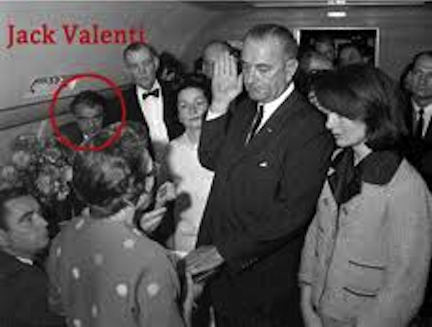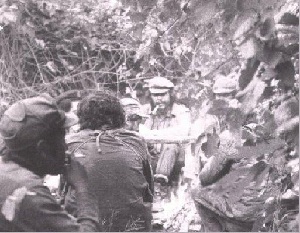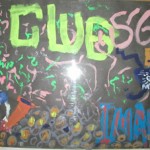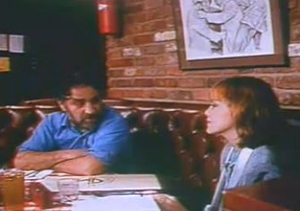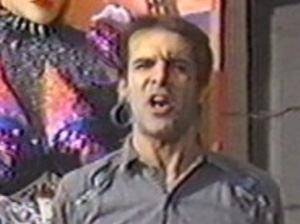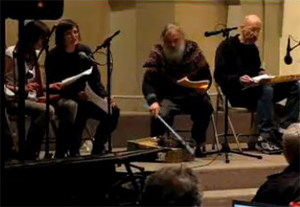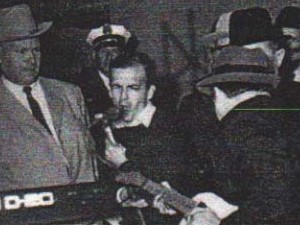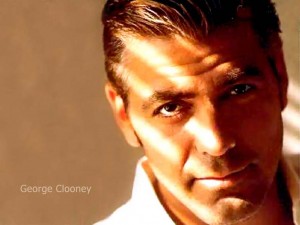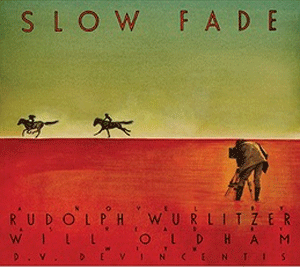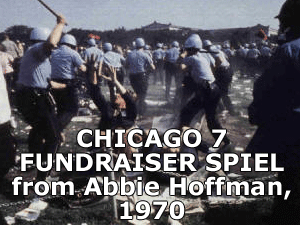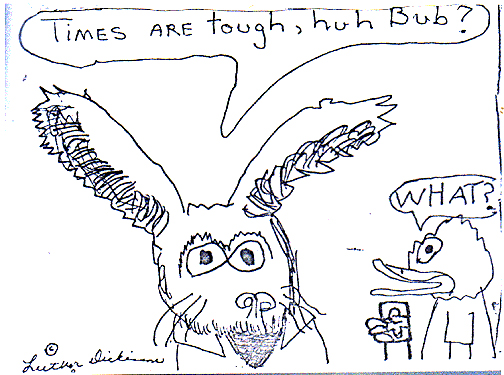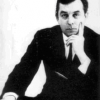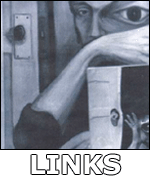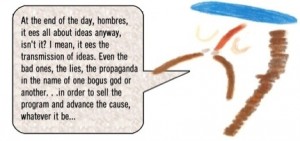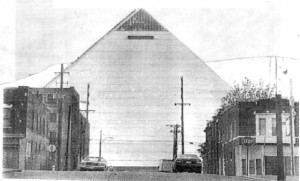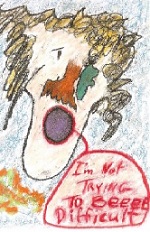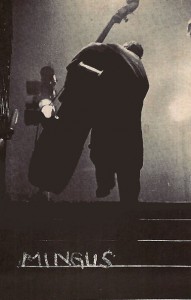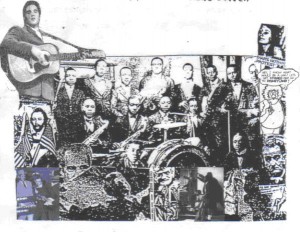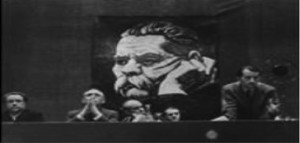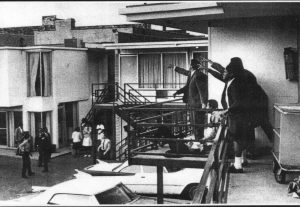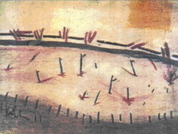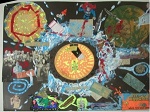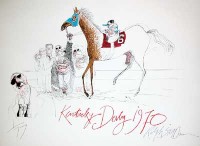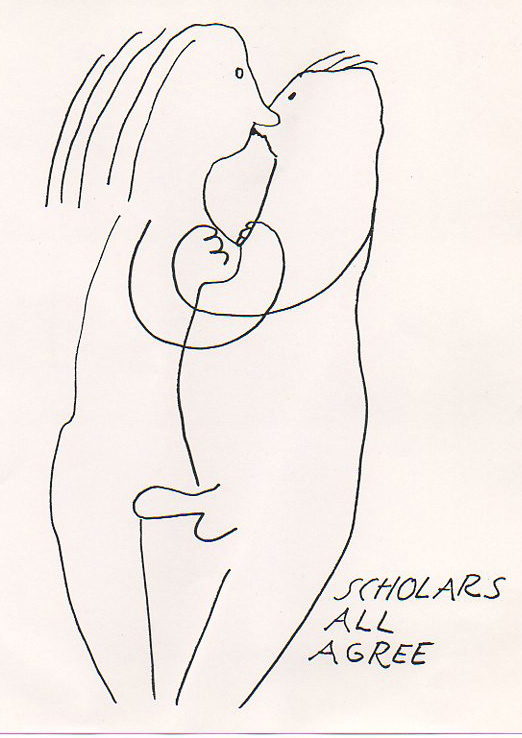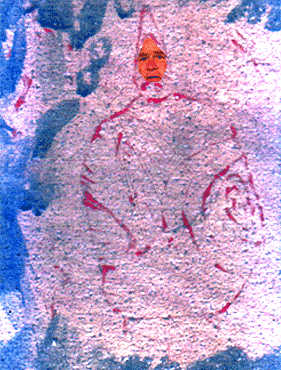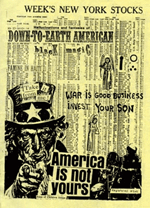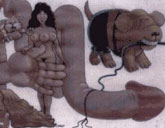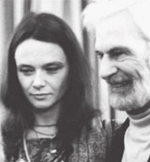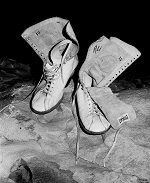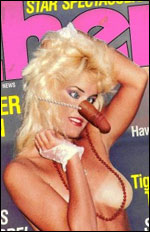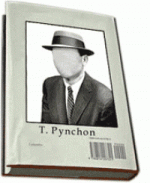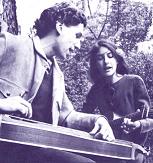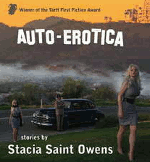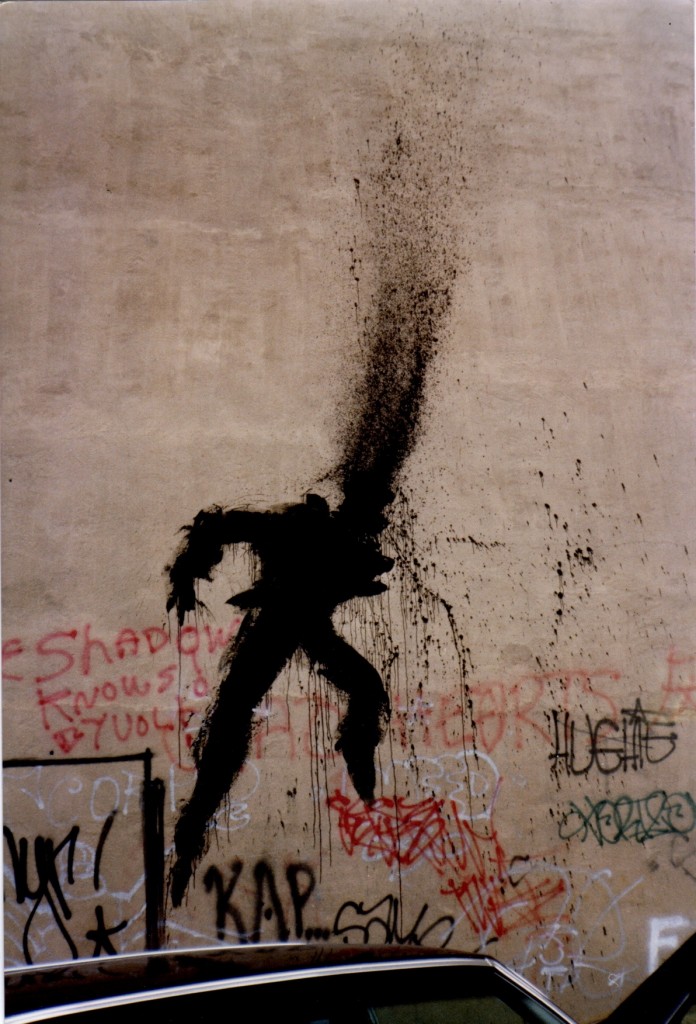“Now Dig This”
The
Terry Southern
Interview
Terry Southern
Interview
Introduction by Mike Golden
“WHAT’S THE DELAY?”
Without a shadow of a doubt the hippest dicitonary you can find is too lame to define hip. Anyway, hipsters are hep, not hip. Or at least according to the dictionary definitions, which all sort of hem and haw, not wanting to be caught showing their well informed, but stylish cube, in case a real hipster is looking it up. Of course a real hipster would never look it up; if you have to ask I can’t tell you is the line that pretty much defines the state of the understatment. In short, people who talk about it are on the far end of the Adoption Curve, so by the time whatever it is that they think it is gets to them, it’s already over and being reinvented back at the source.
Only one underground figure has ever come through that mundane mulch after crossing over the bridge into the mainstream miasma and come back to the cognescenti with his edge intact. I speak of the real Dr. Strangelove, Dr. Terry SOUTHERN himself, American screenwriting’s high priest of hiposie, Godfather of Head Lit, and galloping guru of what lengths the twisted postmodern psyche will go thru just to get off.
On October 29th, 1995, SOUTHERN finally got off for good, passing away at St. Luke’s Hospital, in Manhattan, of a respiratory ailment. While lying there waiting for the inevitable his last words (to his son Nile) were, “What’s the delay?” He had collapsed four days earlier while on the way to teach a screenwriting class at Columbia University.
The major bridge between the black humor and beat aesthetic, SOUTHERN was a co-screenwriter of such classic films as Dr. Strangelove: Or How I Learned To Stop Worrying And Love The Bomb (1964), and Easy Rider (1969), and also worked on The Loved One (1965), The Cincinnati Kid (1965), Barbarella (1968) and The End Of The Road (1970), which he also produced. His books included the novel Candy (1958), which he wrote jointly with Mason Hoffenberg; the novels Flash and Filigree (1958), The Magic Christian - for which he also wrote the script (1959), Blue Movie (1970), and Texas Summer(1992); and Red-Dirt Marijuana and Other Tastes (1967), a collection of short fiction and other writing, as well as Virgin (an illustrated history of Virgin Records - 1995).
This interview started in February of 1989, and went on in numerous different sessions into 1992. I’d been trying to interview him for months for an article I was writing about Maurice Girodias and Olympia Press, but hadn’t had much success reaching him until he called out of the blue one day from Memorial Sloan-Kettering Hospital, and said he wanted to talk. I imagined I was about get one of those truly weird, bizarre ritualistic death bed confessionals, but everything was benign that time, buffs, and Terry wasn’t close to digging himself the deep six just yet. In fact, when we met he looked as chipper as he did on the cover of Sergeant Pepper’s Lonelyhearts Club Band. We talked for about four hours that night, then just as I was about to leave he whipped open his bathrobe like a world class flasher who’s just been discovered by The Wide World of Sports, and with impeccable timing asked, “Want to see my scars?”
We met at least a dozen times over the next few years, talked often on the phone, and even more often he left long, wildly funny (duck) messages on my machine about other writers he admired and the act of writing itself. “The important thing about writing,” he once said, “is the capacity to astonish.” And his worked proved that was certainly his trademark. As this interview shows he obviously had more than a few things he wanted to get off his chest. At one point, after he agreed to work with me on a mini-series based on my article on Paris in the 50s, I asked him if he minded if we fictionalized that portion of his life. Without missing a beat, he said, “My life is fiction.”
- Mike Golden -
“. . .now dig this. . .”
THE TERRY SOUTHERN: INTERVIEW
SMOKE SIGNALS: How long did it take to write Candy?
TERRY SOUTHERN: It dragged on because a lot of times we were in different places. He would be in the south of France, and I would be in Paris, then it might be the other way around. So we’d be mailing each other the stuff. And we’re talking pre-FedX, of course, so it took awhile.
SMOKE SIGNALS: Was that your first novel?
SOUTHERN: No, that was Flash And The Filagree.
SMOKE SIGNALS: Is that the one you wrote on the barge?
SOUTHERN: I started that on the barge, yes.
SMOKE SIGNALS: And Alex (Trocchi) was on an accompanying barge writing Cain’s Book?
SOUTHERN: (chuckles)Yes, we were barge ‘Captains,’ as they called themselves - rather eupemistically since it was a job so lowly that it was ordinarily held by guys who had been kicked out of the Longshore-man’s Union - old winos and the like - being replaced now by this new breed, the dope head writer. But it was one of those classic writer’s jobs, like hotel clerk, night watchman, fire-tower guy, etcetra, with practically no duties (“Just keep her tied up and pumped out”). Alex found it by chance, wandering around the West Side docks after a few hours at the White Horse Tavern. The guy who did the hiring happened to be Scottish - a Scotsman, called ‘Scotty’, in fact. So he took a fancy to Alex, Alex being a Ludgate Scholar from Glasgow, and boss-charm besides. (Scottish accent; “Have ye had any experience at sea, lad?” “Only with small craft, sir - punting on the Clyde and the like.” “Good enough, lad, I like the cut of yer jib.”) So Alex was in. And about half a dozen of us - of similar stamp and kidney - were quick to follow. . .under auspices of The Great Trok.
SMOKE SIGNALS: Weren’t they garbage scows?
SOUTHERN: The ones we were on carried rocks. They were hauling huge boulders up to the sea wall they were building, a great ocean-jetty a few miles off shore. Hauling these rocks down from a quarry at the top of the Hudson, about a three-day trip. And you could take people along. It got to be a ‘social must’, going up river on the barge. Nelson Algren came a couple of times, David Solomon and Seymour Krim, Chris-topher Logue and Jimmy Baldwin. And, of course, Mason would come along quite often. I remember once, after a great hash rave-up, Jimmy just sort of collaposed over the side and Mason had to pull him back aboard, after extracting some sort of weird promise. In jest, of course. So life on the barge was not without interest.
SMOKE SIGNALS: When was this? The early 50’s?
SOUTHERN: That sounds about right, ’52, ’53. I’m the worst on dates.
SMOKE SIGNALS: Was this right after you came back from Paris?
SOUTHERN: Yes, when I came back from Paris, Alex was working on the barges. Before that I never knew that their was anyone on a barge. But there’s a cabin with a bed and coal stove, and, of course, a deck about the size of a football field. It could accomodate a lot of stowaways, even when it was loaded with these gigantic boulders. Sometimes we would be staked out in the middle of the river, several barges tied together. So we could party. Any-way it was a good job for a writer in those days.
SMOKE SIGNALS: Sounds like a good job for a writer right now.
SOUTHERN: Maybe we should check it out.
SMOKE SIGNALS: Maybe we should. Was this about the time Olympia released Candy?
SOUTHERN: Yes, and it was being smuggled through customs and circulated around New York. You could get it at the Gotham Book Mart. In fact, Mason and I brought in a few copies ourselves and sold them to her (Frances Stelloff). And there was this one guy, Peter Israel, an editor at Putnam, who was very perceptive about certain things, and he realized the book had some kind of interesting potential, so he was good enough not to ask us to “tone it down,” as everyone suggested. Actually it turned out not to have many four-letter words anyway, so toning it down would have destroyed it. Then it just took off. It was on the bestseller list for about 11 months.
SMOKE SIGNALS: It was a phenomena. It must have made a lot of money. . .
SOUTHERN: No, just before the six months royalty statement was due, Girodias made a deal with some fellow for a pirated edition. So the royalties were held up, indefinitely.
SMOKE SIGNALS: By this time the copyright was gone?
SOUTHERN: Yeah. It was one of those things where if a book in English is first published outside the U.S., you have to apply for something called an ‘ad-interim copyright’, which is good for six months, then has to be renewed - every six months until it’s published here. Well, we knew nothing about this, but I guess Girodias did because a whole swarm of paperback publishers started putting it out, fly by night. One in particular-
SMOKE SIGNALS: Lancer?
SOUTHERN: Yeah, Lancer.
SMOKE SIGNALS: Was that the Maxwell Kenton edition?
SOUTHERN: Yeah, Maxwell Kenton. Girodias was forced into that once when he was ultra-hot with Customs. They had this list of books that were not allowed out of France or into the U.S., so to beat this rap, he changed the title. For a while it was called Lollipop.
SMOKE SIGNALS: That’s major trivia.
SOUTHERN: Yeah. And the name of the author was Maxwell Kenton. A name I first used with David Burnett, of all people. He was the son of Martha Foley and Whit Burnett of The Best American Short Stories fame. We were collaborating on some short detective stuff, and even sold a couple to Argosy Magazine, and we used the pseudonym ‘Maxwell Kenton’. So when Mason at one point had an attack of conscience and said, “Man, I’ve decided I don’t want my mother to know about this book,” we took the name Maxwell Kenton so his mother would be spared anguish at her Mah-Jong parties.
SMOKE SIGNALS: Were any of those early Maxwell Kenton stories reprinted?
SOUTHERN: They were printed, but not reprinted.
SMOKE SIGNALS: Were any of your stories printed in Merlin?
SOUTHERN: Yeah. It’s awfully hard to find though. Have you seen it?
SMOKE SIGNALS: I have one issue Iris Owens gave me. Actually she was the one who turned me on to the whole Paris-Olympia scene. I’d already read you of course, but not Alex (Trocchi) - well that’s not exactly true - I’d read Frances Lengel down at the dirty book store before I knew he was Trocchi. (laughter) Was it actually a real scene there? Or is that my romantic exaggeration?
SOUTHERN: Oh it was a terrific scene. Because the cafes were such great places to hang out, they were so open, you could smoke hash at the tables, if you were fairly discreet. There was the expatriot crowd, which was more or less comprised of interesting people, creatively inclined. So we would fall out there at one of the cafes, about four in the afternoon, sip Pernod until dinner, then afterwards go to a jazz club. Bird and Diz, and Miles and Bud Powell, and Monk were all there, and if not someone else. Lester Young and Don Byas. It was a period when The Village and St. Germain des Pres were sort of interchangeable, just going back and forth. The thing to do was take a freighter - it was the cheapest way to go. And it was a comfortable and interesting way to go because it was long - 13 days. And the Scandinavian ones had pretty good food. Relative to what we were used to. There were only about eight passengers. We’d eat at The Captain’s Table - and he was invariably some kind of great lush. So he was always fun. And The Village was swinging then. Once in a while you’d find yourself homesick, for one place or the other, but it was okay, because both were good places to arrive at.
SMOKE SIGNALS: Was this about a five year period?
SOUTHERN: From about ’48 to ’52. It was also the bullfight era’. Sort of checking out Hemingway, beginning with San Sebastian, then going on to Barcelona, Valencia, Madrid and ending up in Seville. Mason and I did that a few times, and in 1950 or ’51 we ran with the bulls in Pamplona. That was pretty weird. He talked me into that, like he did with joining the kibbutz that time. He was very persuasisve.
SMOKE SIGNALS: He talked you into it.
SOUTHERN: Yes, we would save up some money and just take off, ‘On the Road’ style. Sometimes we had a car, other times we took the train. It was always a gas.
SMOKE SIGNALS: I never met him, but I’ve heard amazing stories about Mason.
SOUTHERN: (laughing) Well, he was a poet. A poet with a sense of humor. And I like I say, he was ultra persusive. Boss persuasion. Once he convinced me to join a kibbutz with him and go to Israel, despite my complete ignorance of anything Jewish. So we packed some books and clothes and checked into the Holland-American kibbutz freighter, into a dormitory type situation, with about 60 other guys. The ship was still at the dock, on 11th Avenue - not far from the old barge, as a matter of fact, and we had a couple of days to wait until they got their full roster. So we were put to work in the hole, cleaning the boilers - an unbelievable shitty job, plunging our arms up to the shoulder into these furnace pipes and bringing out mountains of wet black soot. Gross City. Anyway on the first morning when we woke up, one guy is already awake, breaking out over the fact that 30 dollars is missing from his footlocker. Someone else says “Okay, we’ve got to put locks on the footlockers.” Someone else says “No, we’ve got to trust each other. Whoever took the money needed it.” This doesn’t go over to well with the guy who lost the 30 bucks. He’s still ranting. So immediately this tight-knit and brotherly group is divided ito two bickering factions. Hardly the utopian comraderie we had expected. So we split. Went to the White Horse and had a couple of tall ones.
SMOKE SIGNALS: Sounds like you were really stretched to the nth.
SOUTHERN: Well yeah, it was great until the problems with drugs started.
SMOKE SIGNALS: Did that start with Alex?
SOUTHERN: I think with Alex and Mason picking up on it in The Village.
SMOKE SIGNALS: Alex wasn’t doing junk in Paris? John Caulder told me Cocteau turned him on.
SOUTHERN: Yes, well he was doing a lot of things, a lot of opium, but there it was really recreational. Cerebal. Had a nice decadent, upper class tone to it. When it got back here they really got hooked into a bad scene. You’d have to be very wealthy indeed not to get involved in anti social behavior to support your habit. Alex putting his girl on the street. . . Did you meet Lyn?
SMOKE SIGNALS: No.
SOUTHERN: She’s dead now.
SMOKE SIGNALS: Was this all happening at the same time Hollywood came calling for Candy?
SOUTHERN: That was later on.
SMOKE SIGNALS: Wasn’t Blue Movie based on the shooting of Candy?
SOUTHERN: No. Blue Movie was based on an idea that Stanley Kubrick had. Somebody came by one day with some porn footage. So we looked at it, and he said, “Wouldn’t it be interesting if one day someone who was an artist would do that - using really beautiful actors and good equipment.” So that was the genesis. Of course I was hoping he would do it as a film. But he’s surprisingly puritanical and shy. When he read part of it, still in manuscript, he said, “Congratulations, you’ve written the definitive blow job.” There actually was a tremendous amount of interest in doing Blue Movie. It nearly happened a couple of times, and one of those times it was fantastic. Ringo Starr had the option - he had it for a couple of years. And John Cally, who was a very hip Producer at MGM - he produced The Loved One that I worked on, and he became the President of Warner Brothers for a brief time, so he was in this heavy decision-making position, and said, “Well now it’s time to do Blue Movie.” He was convinced that the first studio to come out with a quality full length film showing erection and penetration, using stars, would go over the top. “It’ll be like Gone With The Wind,” he kept saying. Super enthusiastic about it. So he got Mike Nichols to direct. And since John was practically living with Julie Andrews at the time, he was able to get her of all people, as the girl. John’s diabolical genius envisioned Mary Poppins getting banged for the world. And so Mike Nichols was ready to go - ready to do it - I couldn’t believe it - so John called Nichols, put me on the other phone and said, “Terry Southern’s here now, and he’s worried you’re not going to do erection and penetration.” It could actually be cut in, or simulated, but it had to look like it - you know, like a pan instead of a cut. So he said, “yes.” And they reassured me on the phone. So I went to see Ringo, and I said, “Look, there’s this chance to do this.” He said, “Right, right, right. . .just make sure you’ve got a proper deal.” I think they might try to use Buck Henry on the script. But the whole thing got bogged down in lawyers. It turned out that Mike Nichols has something like a superstition about allowing other people to be cut into his projects. And the deal fell through, in a grotesque hangup between Nichols and Ringo’s lawyers. But if it had been done, with those kind of credentials, between Nichols and Julie Andrews, they could hardly have dismissed it as shabby porn.
SMOKE SIGNALS: That’s tough to top, but what was the real story of Easy Rider? Did Dennis Hopper actually write it?
SOUTHERN: (laughs) If Den Hopper improvises a dozen lines and six of them survive the cutting room floor he’ll put in for screenplay credit. That’s the name of the game of a certain Den Hopper. No, it would be almost impossible to exaggerate his contribution to the film - but, by George, he manages to do it every time. The precise way it came down was that Dennis and Peter (Fonda) came to me with an idea. Peter was under contract to A.I.P. for several motorcycle movies, and he still owed them one. Dennis persuaded him to let him (Dennis) direct the next one, and, under the guise of making an ordinary A.I.P. potboiler they would make something interesting and worthwhile - which I would write. So they came to my place on 36th street in New York, with an idea for a story - a sort of hippy / dope / caper. Peter was to be the actor / producer, Dennis the actor / director, and a certain yours truly, the writer. I was able to put them up there - in a room, incidentally, later immortalized by the sojourn of Dr. W. S. Benway (Burroughs). So we began smoking dope in earnest and having a non-stop story-conference. The initial idea had to do with a couple of young guys who are fed up with the system, want to make one big score, and split. Use the money to buy a boat in Key West and sail into the sunset was the general notion, and indeed was already slated to be the film’s final poetic sequence. We would occasionally dictate to an elderly woman typist who firmly believed in the arrival, and presence everywhere of the inhabitants of Venus, so she would talk about this. Finally I started taping her and then had her rap about it transcribed, how they were everywhere - Jack Nicholson’s thing was based on that So you can see that during these conferences the hippy/dope/caper premise went through quite a few changes. The first notion was that they not be bikers but a duo of daredevil car drivers barnstorming around the U.S. being exploited by a series of unscrupulous promoters until they were finally disgusted enough to quit. Then one day the dope smoke cleared long enough to remember that Peter’s commitment was for a motorcycle flic, and we switched over pronto. It wasn’t until the end that it took on a genuinely artistic dimension - when it suddenly evolved into an indictment of the American redneck, and his hatred and intolerance for anything that is remotely different from himself - somewhat to the surprise of Den Hopper (imitates Hopper in Apocalypse Now): “You mean kill ’em both? Hey, man, are you outta your gourd?!?” I think for a minute he was still hoping they would somehow beat the system. Sail into the sunset with a lot of loot and freedom. But of course, he was hip enough to realize, a minute later, that it (their death) was more or less mandatory.
SMOKE SIGNALS: Are you saying there was no improvisation in the film?
SOUTHERN: No, no, I’m saying that the improvisation was always within the framework of the obligations of the scene - a scene which already existed.
SMOKE SIGNALS: Then how did Dennis and Peter get included in the screenplay credits?
SOUTHERN: After they had seen a couple of screenings of it on the coast, I got a call from Peter. He said that he and Dennis liked the film so much they wanted to be in on the screenplay credits. Well, one of them was the producer and other was the director so there was no way the Writer’s Guild was going to allow them to take a screenplay credit unless I insisted. And even then they said there was supposed to be a ‘compulsory arbitration’ because too often producers and directors will muscle themselves into a screenplay credit through some under-the-table deal with the writer. They (the WGA) said I would be crazy to allow it and wanted to be assured I wasn’t being coerced or bribed in any way. Because they hate the idea of these ‘hyphenates’ - you know, writer-producer, director-producer. . .because of that history of muscle I mentioned. Anyway, we were great friends at the time, so I went along with it without much thought. So I actually did it out of a sense of comraderi, said that they could use it, and would help them out. So I just went along with it. (Hopper’s) always been extremely insecure, and I gave him credit because I wanted to pull him out. In Interview he pretty much claimed credit for the whole script. I called him, and I called the woman who interviewed him. He said he didn’t remember saying it. Then I heard he said it somewhere else.
SMOKE SIGNALS: Writers appear to be the lowest of the breed in the film biz.
SOUTHERN: Yes. Except we still have persuasion. Which can be considerable sometimes. Which Tony Richardson was great about. Suggestions. . .Of course Stanley(Kubrick), Stanley was like Chaplin. . .He always tried to compose his own music - he’d get Public Domain stuff, existing stuff, he’d hardly ever use a composer, ’cause he liked it to read a film by Stanley Kubrick. But of course, he deserves that.
SMOKE SIGNALS: Was that a good working situation?
SOUTHERN: Working with Stanley was terrific. It was ideal, although the circum-stances may seem peculiar - in the back seat of a big car. The film was being shot at Shepperton, outside London, in the winter. So he would pick me up at 4:30 in the morning and we would make this hour-long trip to the studio. It was a big Bentley or a Rolls, so the passenger part was something like a railway compartment, with folding-out writing desks and good lighting. It would be pitch black outside and really cold, and we would be in this cozy-rosey compartment, in a creative groove, working on the scene to be shot that day.
SMOKE SIGNALS: Writing it? Or rewriting it?
SOUTHERN: Well, let’s say trying to improve it. Kubrick would say “Now what’s the most outrageous thing this guy (a character in the scene) would say at this point?” and hopefully I could come up with something like “If you try any preversion in there, I’ll blow your head off.”
SMOKE SIGNALS: Keenen Wynn to Peter Sellers in the phone booth?
SOUTHERN: Yes. Col. ‘Bat’ Guano (“if, indeed, that is your name”) to Group Captain Lionel Mandrake. The thing about Kubrick is that he’s not only extraordinarily creative, but he will encourage the other person to go all out, and not try to keep a ‘reasonable lid’ on it. Stanley’s like a kind of chess playing poet. One side of his brain is very scientific, the other very poetic.
SMOKE SIGNALS: Over the years I heard talk of a ‘missing scene’ or a sequence that was deleted from Strangelove. What’s the story on that?
SOUTHERN: Well that would be the fabulous so-called pie-fight episode. You may recall the scene near the end of the film, in the War Room, after the bomb has been dropped, and Strangelove suddenly stands up from his wheelchair, and says, Mine Fuehrer, I can valk!” And he takes a step? Recall that?
SMOKE SIGNALS: I do indeed.
SOUTHERN: Well, in the missing sequence, after taking one step he falls flat on his face and starts trying to get back in his wheelchair, but each time it scoots out of his grasp. Meanwhile, parallel to this action in another part of the War Room, the Russian Ambassador is caught again trying to take pictures of the “Big Board’, George C. Scott nails him and again they’re fighting in the War Room.’ So Scott exposes about 18 micro-mini spy cameras on the Ambassador - in his wrist-watch, cuff-links, tie-pin, on his ring-finger, everywhere. But Scott says, “I think these are dummy cameras. I think he’s got the real McCoy concealed on his person.” And he turns to the detail of MP’s who have come in. “I want you to search him very carefully, boys,” he says, “and don’t overlook any of the six bodily orifices.” And the Russian Ambassador goes through this quick calculation, “vun. . .two. . .” and then when he reaches the last one, he freaks. “Vhy you Capitalist swine,” he says, and he reaches out of the frame, gets something and throws it at George C. Scott. I should mention that we have previously established a huge catering table that was wheeled in, laden with food, so they don’t have to leave the War Room during this crisis. So the Ambassador reaches out of the frame, grabs something from the table and throws it at Scott. We don’t see what it is immediately but Scott ducks, and this big custard pie hits the President in the face. The mere indignity of this is so monstrous that the President just faints dead away. Scott grabs him and keeps him from falling, and he’s holding him in his arms like a martyred hero, “Gentlemen,” he says to the others, “Our President has been struck down in the prime of his life. . .by a custard pie. I say ‘Massive Retaliation!” And he throws something at the Ambassador. And it misses and hits one of the other Joint Chiefs. So this immense pie-fight begins - between Army, Navy, Air Force - a bit of inter-service rivalry, if you grasp the innuendo. Now while this pie-fight is going on, Strangelove is still trying to get back into this wheelchair, moving like a snake across the floor of the War Room, and the chair continuing to scoot out of his grasp each time he reaches for it. Finally he gets to the end of the War Room, and the chair is against the wall and it looks like he’s got it this time. But it scoots away again. So Strangelove pulls himself up so that he’s sitting with his back against the wall. And he’s watching the pie-fight in the distance. Then his hand - his uncontrollable right hand - reaches inside his coat and comes out with a Luger pistol and points it at his head. He grabs his wrist with his other hand and grapples for the pistol, which goes off with a tremendous roar. Then cut to the long shot of all these generals in a freeze frame. And Strangelove says, “Enough of these childish games. We have work to do.” So they all stand there staring at him in complete silence, until Scott recognizes this is the guy to get tight with, so he walks all the way across the War Room floor, and says, “Doctor, may I help you?” And helps him into his wheelchair. He starts pushing him back across the floor, which by now is so deep in custard pies it resembles a beach - and sure enough we quickly pass the President and the Russian ambassador sitting there crosslegged like two children, doing sand castles, making mountains. And Strange-love says, “Ah too bad. Apparently their minds have snapped under the strain. Perhaps they’ll have to be institution-alized.” And so Scott continues pushing him across to this group of officers and CIA types, who are so covered they look like ghosts. And he says, “Well, boys, I think the future of this great nation of ours is in the hands of people like Doc Strangelove, and I think we owe him a vote of thanks. Let’s hear it for the good Doctor.” And in a really eerie (whispering) voice, they go, “hip-hip hooray, hip-hip hooray.” And then he continues pushing him across the floor as they start singing, “For he’s a jolly good fellow, for he’s a jolly good fellow.” So this counter camera pulls up so you’ve got this long shot of the ultimate allegiance between this mad scientist and this general from The Joint Chief of Staff. And then they cut to the explosion and the song “We’ll Meet Again,” comes in - and the credits rise.
SMOKE SIGNALS: That was the cut?
SOUTHERN: Not without good reason. The problem was that Stanley, great genius director that he is, forgot to say, “Listen, what we’re representing here is interservice rivalry.” Which is one of the most evil things - each time there’s an appropriation to one group the other says, “listen, we’ve got to have that too.” And there’s no stopping the Pentagon on this level. It’s viscous. And he forgot to tell them it’s viscous. So what’s happening in this pie fight is that people are laughing, and they shouldn’t be laugh-ing. It’s supposed to be deadly serious. And it was such a funny situation, that people outside the periphery, including Stanley and myself, were tossing pies into the melee, you see. And so it lost its edge. It was like a comedy scene, when everything else in the film had been played straight, except once when the Coca-Cola machine spurted in Keenan Wynn’s face. So that’s why he decided not to have it in. I saw it again recently, and think it holds up well.
SMOKE SIGNALS: Me too. So does The Loved One. It recently came out for the first time on video, after all these years. Why did it take so long?
SOUTHERN: For some weird reason, they held it back - it’s an MGM film - Haskell Wexler, who was the coproducer and cinemaphotographer, had a copy he sent me, and I got a duplicate made, but you couldn’t get it. The casting on that was great. Re-member that sequence with Milton Berle and Margarite Leighton when the dog dies and she doesn’t want to let them bury the dog?
SMOKE SIGNALS: Yeah. that was played really strong. But Rod Steiger - Joyboy and his mother was too outrageous to describe.
SOUTHERN: Everytime I see Rod Steiger, rather, the few times I’ve seen him, he always talks about that. He was carried away by that role, he got into that role so much. . .He had his hair in rollers on the set. Running around on the set when he should have been resting, dishing with the girls. It had such a great cast: John Gielgud, Lionel Stander, Robert Morley, Jonathan Winters, Robert Morse. . .
SMOKE SIGNALS: You wrote the scripts for The Cincinnati Kid, Barberella, The End of The Road and The Magic Christian, right. What happened to The Magic Christian? I loved the book, the book has a whole life outside itself - was Guy Grand based on anybody in particular?
SOUTHERN: Well it’s sort of a composite of people I’ve known or imagined. For some reason I’ve always thought of the actor Robert Morley, as the physical type. He has a nice absurdly pompous look about him.
SMOKE SIGNALS: I couldn’t wait for the movie, but. . .
SOUTHERN: Well, I had written a really good script of The Magic Christian for Peter Sellers, then he and the director, Joe McGrath, were in London, supposedly setting up the film while I finished working on an adaptation of John Barth’s End Of The Road - which incidentally, was one of the most interesting films I’ve been involved with. But instead of waiting for me to get to London, Peter who was always ultra-hypper and antsy about everything, gets Spike Milligan and a couple of his Goon Show cronies to rewrite a few scenes - without having ever read the book. Dig that for gross weird. All they knew was that it was about an eccentric billionaire who staged elaborate practical jokes. So they slipped into a bit of infantile self-indulgence, with some pointlessly des-tructive behavior by Guy Grand. Totally out of character. They had him cutting up Rembrants for Chistsake! So I’m afraid that film has, in my view, some serious lapses.
SMOKE SIGNALS: The book had an incredible following - I met a number of drug dealers over the years who kept it locked up along with their personal stash.
SOUTHERN: The ultimate compliment? Peter Sellers, despite what happened to the film, bought a hundred copies when it first came out in England. He would give them to friends at Christmas. In fact, he was the one who turned Stanley (Kubrick) on to. . .this unique brand of humor.
SMOKE SIGNALS: You seem to have been able to go back and forth between films and prose easier than most writers. When you started writing films, was it hard to write prose?
SOUTHERN: I think it was just the monetary thing. I got hooked on the bread.
SMOKE SIGNALS: Do you find a physical difference between writing prose and writing screenplays.
SOUTHERN: Well, there’s quite a differ-ence in the deadline aspect of it. I’ve always sort of visualized things when I wrote prose, so that part comes easy to me. In fact easier than prose, because what I really like to write is dialogue.
SMOKE SIGNALS: I heard Paddy Chayefsky once said, “Terry SOUTHERN: writes the best dialogue in America.”
TERRY SOUTHERN: He wrote that in a letter to Peter Beard. He was the best around, so coming from him that means quite a bit.
SMOKE SIGNALS: The first dialogue that ever totally blew me away was from Red Dirt Marijuana and Razor Fight, the first two stories in the Red Dirt collection. In fact, back in 1970 or 71, I started adapting those stories for Richard Pryor.
SOUTHERN: Without an option, of course.
SMOKE SIGNALS: I was going to come to you when the first draft was finished. C.K. was the perfect vehicle for Pryor to become a movie star. But before we could see if it was going to work as a screenplay, or get in touch with you to option it, Lady Sings The Blues hit, and WANGO, he became a movie star, and unfortunately the money came rolling over him and that was the end of any chance he had to do film work that was on the same level as his standup.
SOUTHERN: I can see how that happened.
SMOKE SIGNALS: Was A Texas Summer based on Red Dirt Marijuana and Razor Fight?
SOUTHERN: Not exactly. The first two stories in Red Dirt Marijuana are excerpts from A Texas Summer. It just took me another 20 years to finish it as a novel.
SMOKE SIGNALS: Were you the white kid, Hal? Is it based on you growing up in Texas?
SOUTHERN: Reading it over, it seems to be based quite a bit on that. Not consciously, but I certainly drew on my childhood experiences. It’s about one summer in the life of an impressionable 13-year-old farmboy, and especially his relationship with a 35-year-old black, who’s the hired hand. And he - the black guy - is relatively hip and laid back, with a terrific sense of humor - he was, you know, one of those classic ‘great-spades-of-Texas’ types; works hard, drinks sweet Lucy, smokes a little dope, fabulous story teller, great ball player, great crap shooter, eats bar-b-que so hot it makes your eyes water, gets into the occasional razor fight, the whole store. Well, I knew a guy like that. Fantastic guy. A tremendous influence on every white kid he came across. Real down home guru, without realizing it, of course.
SMOKE SIGNALS: How did growing up in Texas shape you as a writer.
SOUTHERN: Well Texas is probably a good place for a boy to grow up, in a Huck Finn sort of way, like one big outdoor playground, with a lot of hunting and fishing Dad-and-Lad stuff going on. But, as Liz Taylor said, “It’s hell on horses and women.” Because it’s a cultural desert. But once, when I was seven or eight and sick in in bed, my mother decided to read to me. The book she chose, for some odd reason, since her own leaning was more towards Louis Bromfield, was a volume of the great E. A. Poe - The Gold Bug, if memory serves. Well, for a young Texas lout, E. A. Poe was heady brew. And it was a perfect turn-on to “Quality-lit,” of a weirdo bent. I was hooked on Poe. And Poe, of course, is the gateway to the greatest. If marijuana leads to cocaine, Poe most certainly leads to Baudelaire, Rimbaud, Joyce, Celine, Lautreamont, Huysmans, Nathaniel West, Faulkner, Sartre, etcetra, etcetra, ad glorium.
SMOKE SIGNALS: Ad glorium. . .



